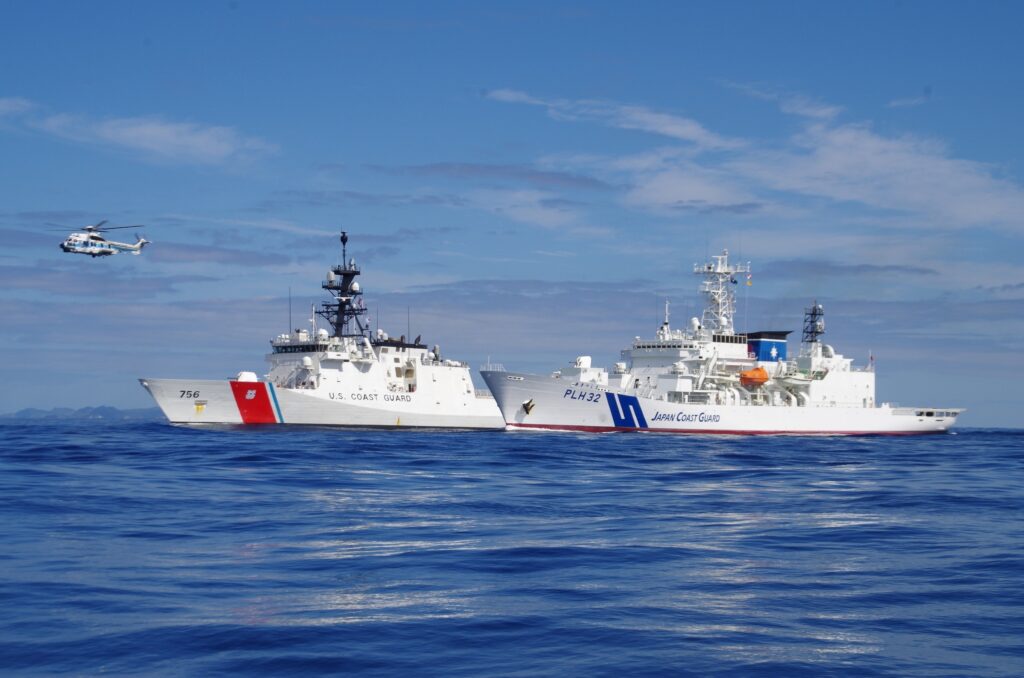Established in 1790, the United States Coast Guard has a rich history as one of the oldest organizations within the federal government. Originally known as the Revenue Cutter Service, it was tasked with enforcing tariffs and preventing smuggling along the nation’s coastlines. Over the years, the Coast Guard has evolved into a multi-mission maritime service responsible for tasks such as search and rescue, maritime law enforcement, environmental protection, and homeland security. From its early years defending the nation during the War of 1812 to its modern-day operations combating drug trafficking and enforcing maritime law, the Coast Guard remains a vital component of the nation’s security infrastructure.
A Historical Overview of the US Coast Guard: Guardians of the Seas and Homeland Security
Established in 1790, the United States Coast Guard is one of the oldest organizations within the federal government. Originally known as the Revenue Cutter Service, its primary mission was to enforce tariffs and prevent smuggling along the nation’s coastlines. Over the years, the Coast Guard has evolved into a multi-mission maritime service responsible for a wide range of duties, including search and rescue, maritime law enforcement, environmental protection, and homeland security.
Early Years
The origins of the US Coast Guard can be traced back to the founding of the Revenue Cutter Service on August 4, 1790. Under the direction of the Secretary of the Treasury, the Revenue Cutter Service was responsible for enforcing federal tariff laws and preventing smuggling. The service operated a fleet of cutters, which were small, fast sailing vessels designed for coastal patrol and interception of smugglers.
During the War of 1812, the Revenue Cutter Service played a critical role in defending the nation’s coastlines and maritime interests. In 1837, the service was officially renamed the US Revenue Marine, reflecting its expanding role in protecting the nation’s maritime interests.
Integration and Expansion
In 1915, the US Revenue Marine merged with the US Lifesaving Service to form the US Coast Guard. This new organization was tasked with a broader mission that included search and rescue, maritime law enforcement, and environmental protection. During World War I, the Coast Guard played a crucial role in protecting the nation’s ports and waterways from enemy threats.
Throughout the 20th century, the Coast Guard continued to expand its mission and capabilities. During World War II, the service conducted numerous search and rescue missions, escorted merchant ships through dangerous waters, and intercepted enemy submarines. After the war, the Coast Guard assumed a key role in enforcing maritime law, combating drug trafficking, and protecting the marine environment.
Modern-Day Operations
Today, the US Coast Guard is a multi-mission agency with a diverse set of responsibilities. The service is responsible for safeguarding the nation’s maritime interests, including search and rescue, maritime law enforcement, and environmental protection. The Coast Guard also plays a critical role in homeland security, working to prevent terrorist attacks and protect the nation’s ports and waterways.
The Coast Guard operates a fleet of cutters, helicopters, and other specialized vessels and aircraft to carry out its missions. The service also works closely with other federal, state, and local agencies to coordinate maritime security efforts and respond to emergencies. In recent years, the Coast Guard has been at the forefront of efforts to combat drug trafficking, human smuggling, and other transnational threats.
Conclusion
Throughout its long and storied history, the US Coast Guard has served as a guardian of the seas and a vital component of the nation’s homeland security infrastructure. From its humble beginnings as the Revenue Cutter Service to its modern-day role as a multi-mission maritime service, the Coast Guard has consistently demonstrated its dedication to protecting the nation’s maritime interests and safeguarding its citizens. As threats to our maritime security continue to evolve, the Coast Guard remains poised to meet the challenges of the 21st century and beyond.
